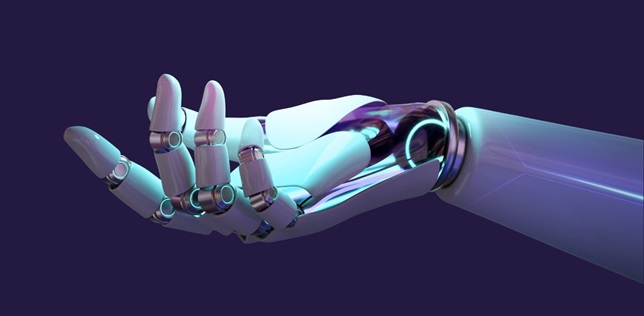Want to know more about how artifical intelligence has an affect on cyber security. Find out more!
Artificial Intelligence (Noun) – the capability of a digital computer or computer-controlled robot to perform tasks commonly associated with intelligent beings. Tasks such as thinking, reasoning and using creative ideas to solve puzzles. It’s something that was relegated to the realms of science fiction for a long time. But now, thanks to huge strides and technological advancements, it’s right on our doorstep, and it’s not all quite as cheerful as we once thought it would be. Discussions around AI tend to all trend in the same way – a distinct unease at the new intelligence will quickly evolve from being a benefit to society to taking it over. But is this all in the realms of fantasy? Isn’t there some way AI could be a good thing for cyber security.
The Dark Side Of AI
The darker possibilities of AI have been explored in length, mainly in science fiction. I mean, just look at examples like iRobot, 2001: A Space Odyssey, Ex Machina, Morgan and even Avengers: Age Of Ultron – all of them look at what would happen when AI gains a little too much knowledge. But let’s take the ‘out there’ ideas, like the HAL 9000, out of it for a second. There is a very real case to be wary of AI and its potential. Experts like Elon Musk and the late Stephen Hawking have warned of the dangers of AI, for good reasons. It’s an immensely powerful tool that can develop its own ability to think and problem solve. If AI fell into the wrong hands – say those of a cyber-criminal or someone with loose morals – it could easily become the most sophisticated hacking tool ever seen.
It’s Not All Doom And Gloom
But let’s be honest, there are more cases for using AI in your cyber security defences than against. For example, we can use AI to find anomalies – whether that’s malicious behaviour, malicious entities, hackers, viruses or anything in-between. AI is capable of gathering and analysing data, and using it to identify problems and protect systems, on a scale we can’t even imagine yet. And because AI is based on machine learning protocols, the performance will only increase. Once threats have been identified, AI can even be used to combat the invasion and address the cause of the breach at its source. AI also has the capacity to ‘think’ more creatively than a simple computer programme, allowing it to predict the attack paths of hackers in a more sophisticated way. Even in its infancy, AI presents businesses with a way of automating complex processes for detecting and reacting to breaches and can be an invaluable tool for business security.
What’s Driving AI Based Cyber Security Adoption?
Over the last 5 years, research and development of AI technologies for the cyber security sphere has come a long way. According to ESG research, there are 4 main reasons cyber security experts are pushing for new advancements in AI technology:
To be able to use AI-based cyber security technology to accelerate incident detection. Incident detection in the early stages means being able to spot tiny anomalies in a sea of data – something human beings are still struggling to do. Using AI would mean experts could do a better job of curating, correlating and enriching high-volume security alerts from the various tools used, allowing businesses to piece together a cohesive incident detection map and significantly increase the number of incidents caught early.
To use AI-based cyber security technology to accelerate incident response times. In addition to having access to more data (as discussed above), AI allows businesses to improve operations, prioritising the right incidents for further investigation and even automating basic remediation tasks.
To use AI-based cyber security technology to help businesses better identify and communicate risks to others in the business. In this case, AI would be used to sort through the mountains of software vulnerabilities, configuration errors and threat intelligence to isolate high-risk situations and identify them for needing immediate action.
To use AI-based cyber security technology to gain a better understanding of cyber security situational awareness. In other words, CISOs want an element of AI in the mix to provide a unified view of security status across the network.





